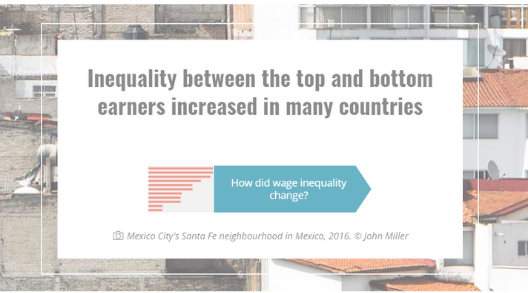On its InfoStories website, the International Labour Organization has published a graph demonstrating the changing pay inequality across the world. The graph shows the so-called ‘top-bottom wage inequality ratio’, which compares the group of individuals who are in the top 10% of the income distribution and the group which is in the bottom 10%. Through analysis of OECD data from 2000 and 2016, the graph indicates which countries have seen an increase in inequality and which ones have seen this decrease. An increase in inequality has been recorded in the United States, where the income of the top 10% was 4.49 times higher than those in the bottom 10% in 2000, rising to 5.07 times higher in 2016. The ratio in Norway (2 to 2.55) and Ireland (3.27 to 3.79) over the same period. Meanwhile the ratio decreased in Chile (6.07 to 4.32), Estonia (5.11 to 3.78) and Hungary (4.66 to 3.73). The graph also indicates that the three most unequal countries in the world are the United States, where the best paid 10% of the population are paid 5.07 times more than those in the bottom 10%, Israel (4.76) and Chile (4.32).
Do you have information to share with us?
